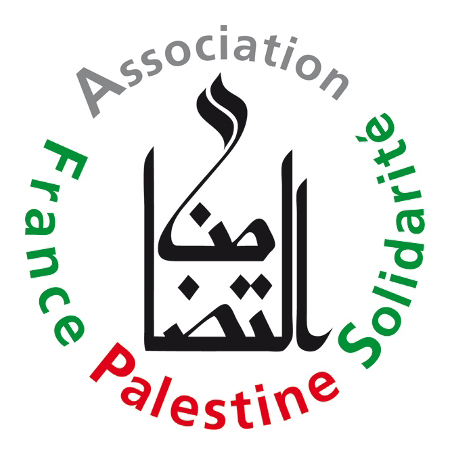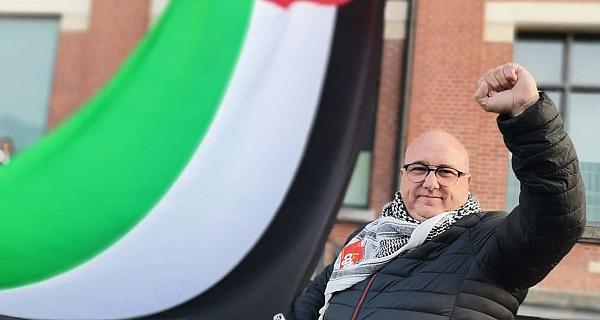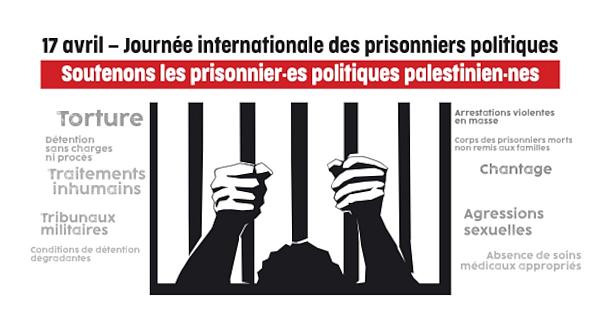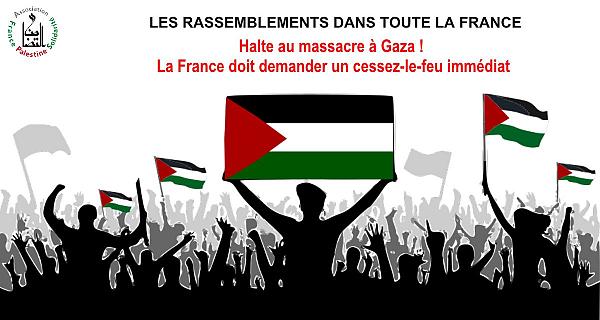In its landmark judgment on June 11th 2020, the European Court of Human Rights (ECHR) ruled that freedom of expression protects the right to call for the boycott of a State’s products in order to protest that country’s policies, so long as that call does not devolve into a call for violence, hatred or intolerance.
This was an unambiguous victory for French activists exercising their civic right to call for boycott to denounce the policies of the State of Israel against the Palestinian people.
The judges of the Court ruled unanimously against France in this case for having violated the freedom of expression of peaceful activists. The French State has not appealed against this ruling. It would have been reasonable to expect France to take note of the judgment and come to its logical conclusions from both a judicial and political point of view. France should have written to its prosecutors, announced the withdrawal of the Alliot-Marie and Mercier memoranda (circulars issued 12 February 2010 and 15 May 2012, respectively) and instructed them to respect freedom of expression in accordance with the ECHR judgment.
But it did no such thing. The French government chose instead to muddle the ECHR’s clear message and ignore the European Convention on Human Rights’ guarantee of freedom of expression. France’s government has demonstrated, once again, how little regard it has for freedom of expression when it comes to boycotting Israeli products. Just last month, on October 20th, the Ministry of Justice issued a new memorandum, addressed to prosecutors, “regarding the repression of discriminatory calls to boycott Israeli products”.
This memorandum is already problematic in that it concerns solely the case of Israel, while many other countries are also the targets of boycott action.
The memo states that the previous Alliot-Marie and Mercier circulars remain in force and that the call for a boycott may still constitute an offense if it involves “public incitement to discrimination” or if it is of “anti-Semitic nature” resulting “directly from the words, actions and writings of the accused”. The Ministry’s text purposely maintains the vagueness of the term “discrimination” and attempts to conflate the call for boycott with anti-Semitism.
In practice, this ambiguous and confusing memo will be difficult to apply judicially. Such was the case for its predecessors Alliot-Marie and Mercier, judging by the low number of legal proceedings initiated compared to the multitude of boycott actions taken. This new memo’s objective is obviously political: it aims to reassert the supposed illegality of boycott actions, equate them with anti-Semitism and erase the ECHR’s harsh ruling from public memory.
It is crucial to stress the existence of a “hierarchy of norms”. The purpose of a ministerial memo is to give instructions to the administration – public prosecutors, in this case – but it does not have the force of law. The ECHR’s judgment is now the authority. Despite the French government’s latest attempt, we now have the law on our side.
In accordance with this hierarchy of norms, the ECHR ruling has direct application in France. In particular, it states that “the respondents’ actions and remarks concerned a subject of general interest, namely the respect for public international law by the State of Israel and the human rights situation in the occupied Palestinian territories, and were part of a contemporary debate that is open in France just as it is in the entire international community. Furthermore, these actions and words were part of activist political expression...”.
Launched by Palestinian civil society, the international BDS campaign, which includes the AFPS’ calls and actions for boycott, divestment and sanctions, is explicitly based on political demands. Like our partners and other Palestine solidarity organizations in France, we strongly reject all form of racism, including anti-Semitism, as well as all hate speech. The Justice Ministry memo’s conflations cannot be applied to our actions, whose motivations are always explicitly political.
Guided by the strength of our values – justice, equality and respect for international law – and fully aware that we now have the law on our side, we will continue our actions, including the boycott of Israeli products, in our fight for the rights of the Palestinian people so long as Israel refuses to respect international law and human rights.
The AFPS Executive Board
26 November 2020





